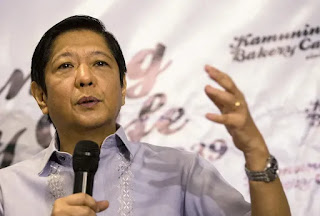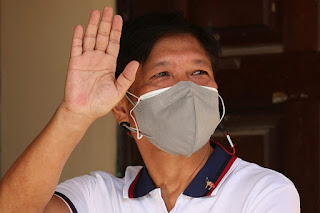Bongbong Marcos urged the reactivation of his father's oil price stabilization fund.
XEM THÊM :
Ngũ linh với xì dách cái nào hơn liệu bạn đã biết thông tin chi tiết?
MANILA, Philippines — President Ferdinand "Bongbong" Marcos has been urged to reactivate the Oil Price Stabilization Fund (OPSF), a program established by his late father during his presidency to combat the country's recent wild swings in fuel prices.
Rep. Mikee Romero of the 1-Pacman party-list said in a statement on Monday that the revival of the OPSF, which was established in 1984 during the term of late former President Ferdinand E. Marcos, will create a buffer fund that can serve as a cushion when fuel prices rise or fall sharply, as has happened in recent months.
On Tuesday, oil companies are expected to implement a fuel price rollback of around P5 per liter of gasoline and diesel, following weeks of hikes that drove pump prices to more than P80 per liter of gasoline and P90 per liter of diesel.
"We should resurrect the OPSF or create a similar buffer fund that the government can use to avoid frequent adjustments in the pump prices of oil products due to fluctuations in the cost of crude oil on the global market and in the peso-dollar exchange rate," Romero said.
The lawmaker, an economist, argued that prices are still volatile as a result of the Russia-Ukraine conflict. However, with the buffer mechanism, sudden price increases would be temporarily borne by the government in order to avoid a sharp increase in expenses.
If the government does not suspend excise taxes on oil products, including those mandated by the Tax Reform for Acceleration and Inclusion (TRAIN) Law, this could be a solution.
"Because the government is unwilling to agree to the proposed suspension of excise taxes while the price of crude is above $80 per barrel, we could use a portion of these impositions as a price stabilization fund to provide relief to the public from increased fuel and consumer prices," he said.
He hopes Marcos will be open to the proposal, especially since it was initiated by his father.
According to Romero, under the older Marcos' Presidential Decree No. 1956, issued in October 1984, oil companies would be reimbursed through the OPSF for "cost increases on crude oil and imported petroleum products resulting from exchange rate adjustment and/or increase in world market crude oil prices."
However, in May, a government think tank warned that reviving the OPSF would cause more problems than it would solve in the face of rising oil prices.
According to a study conducted by the Philippine Institute for Development Studies (PIDS), the OPSF would go against oil deregulation reforms implemented in the early 1990s.
According to PIDS, the OPSF required oil companies to contribute to the buffer fund when crude prices were low while withdrawing from it when prices were high. As a result, the government had to bear the majority of the costs, resulting in a budget deficit.
An adviser to then-candidate Marcos stated in February that the OPSF would be reconsidered by the President if it was beneficial to the country.
Recently, groups have called for the suspension of oil product taxes in order to alleviate the suffering of the poor as a result of high fuel prices. The activist group Bagong Alyansang Makabayan (Bayan) insisted on tax cuts, especially with the headline inflation rate for June 2022 rising to 6.1 percent, the highest in more than three years.
READ ARTICLES :
https://movie4uandme143.blogspot.com/2022/07/a-town-full-of-ghosts-2022.html
https://movie4uandme143.blogspot.com/2022/07/review-of-film-stalker-2022.html
https://movie4uandme143.blogspot.com/2022/07/locked-in-2022-film-review.html
https://n3wst0day.blogspot.com/2022/07/marcos-gets-covid-anew-has-slight-fever.html
https://n3wst0day.blogspot.com/2022/07/lpa-off-mindanao-has-potential-to.html




Nhận xét
Đăng nhận xét